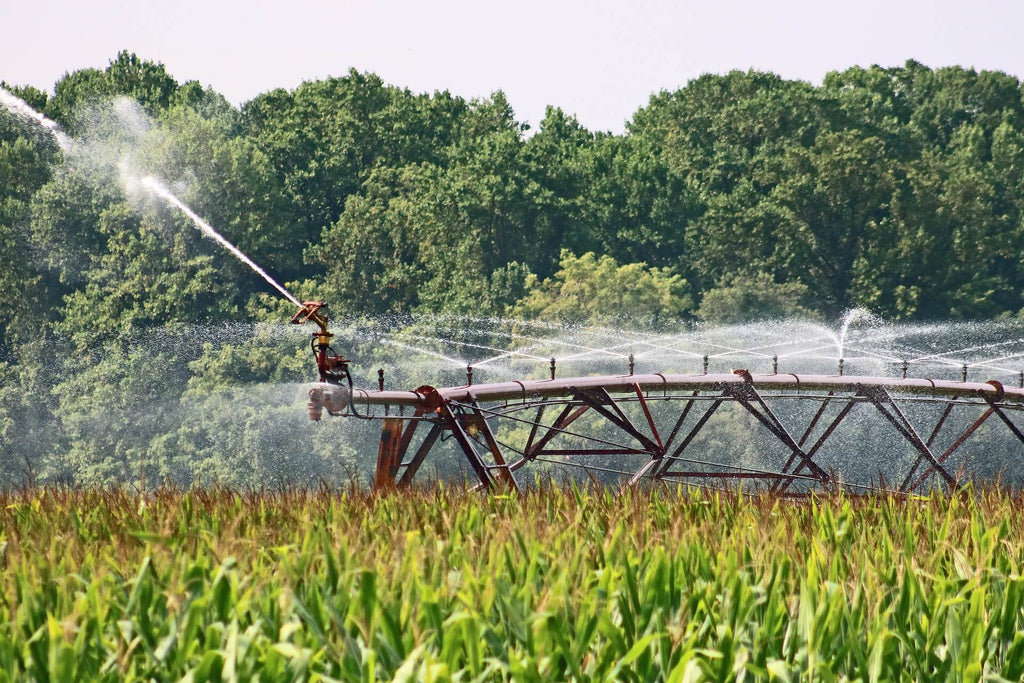How to Remove Nitrate from Water
Nitrate is a common water contaminant that can pose serious health risks. Nitrate levels in drinking water can be reduced using several different methods, including reverse osmosis, ion exchange, and activated carbon filtration.
- Boil the water for at least one minute
- This will kill any bacteria that may be present in the water
- Filter the water through a coffee filter or a piece of cloth to remove any sediment or particles that may be present
- Add a tablespoon of salt to the water and stir well to dissolve
- Place a piece of charcoal in a bowl and pour the salt water over it
- Allow the water to seep through the charcoal for at least an hour before drinking
How to Remove Nitrates from Well Water
What Naturally Removes Nitrates from Water?
There are many ways to remove nitrates from water, but using natural methods is often the best option. One way to remove nitrates from water is by using a process called denitrification. This process uses bacteria to convert nitrates into nitrogen gas, which then escapes into the atmosphere.
Another way to remove nitrates from water is by using plants that have a high affinity for nitrogen. These plants can be used in conjunction with other methods, such as denitrification, to further reduce the amount of nitrates in water.
What Water Filter Removes Nitrates?
Nitrates are found in many water sources, including well water. While nitrates in drinking water is not a health concern for most people, infants and pregnant women should avoid consuming water with high levels of nitrates. There are a few different types of water filters that can remove nitrates from your drinking water.
Reverse osmosis is one type of filter that can effectively remove nitrates from your water. This type of filter forces water molecules through a semipermeable membrane, leaving contaminants behind. Activated carbon filters are also effective at removing nitrates from your drinking water.
These filters use carbon to adsorb contaminants from the water as it passes through the filter.
If you’re concerned about the level of nitrates in your drinking water, consider investing in a reverse osmosis or activated carbon filtration system. These filters will provide you with clean, safe drinking water free of harmful contaminants like nitrates.
What Chemical Removes Nitrates?
The chemical that removes nitrates is denitrification. This process occurs when bacteria in the water convert nitrates into nitrogen gas. The bacteria need anaerobic conditions to do this, so denitrification typically happens in areas where there is little or no oxygen, such as in the bottom of a lake or pond.
What to Do If Tap Water is High in Nitrates?
If your tap water is high in nitrates, there are a few things you can do to mitigate the problem. First, you can have your water tested by a professional to see how high the nitrate levels are. If they’re only slightly elevated, you can try using a water filter to remove some of the nitrates before drinking or cooking with the water.
If the levels are more significantly elevated, you may need to use an alternative source of water for drinking and cooking. You can also contact your local municipality or water supplier to inquire about what might be causing the high nitrate levels and what steps they’re taking to address the issue.

Credit: www.freshwatersystems.com
How to Remove Nitrate from Water Naturally
In order to remove nitrate from water, the most common and recommended way is to install a reverse osmosis system. This will help to significantly reduce the amount of nitrates in your water. Additionally, you can also look into using a whole house filter or a point-of-use filter that is certified to remove nitrates.
These are typically more affordable than a reverse osmosis system and can still provide you with clean, safe drinking water.
How to Remove Nitrates from Aquarium Water
If you have an aquarium, it’s important to keep the water clean and free of harmful chemicals. Nitrates are one of the most common pollutants in aquarium water, and can be very dangerous to your fish.
There are a few different ways to remove nitrates from your aquarium water.
One is to use a chemical filtration media such as denitrifying bacteria or zeolite. These products will help to break down the nitrates into harmless nitrogen gas.
Another way to remove nitrates is through frequent water changes.
This dilutes the concentration of nitrates in the water and helps to keep them at safe levels. Be sure to use a good quality dechlorinator when changing your aquarium water, as chlorinated tap water can also be harmful to your fish.
If you notice that your fish are starting to look unhealthy or that the tank water is looking dirty, these could be signs that there are high levels of nitrates present.
Test your aquarium water regularly with a reliable test kit and take action immediately if nitrate levels start to rise. By taking these steps, you can help ensure a happy and healthy environment for your fish!
How to Remove Nitrates from Well Water
Nitrates are a common water contaminant, especially in well water. While nitrates in small amounts are not harmful, high levels of nitrates can be dangerous, particularly for infants and young children. Nitrates can cause a condition called methemoglobinemia, or “blue baby syndrome”, which can be fatal.
There are several ways to remove nitrates from your well water. One is to install a reverse osmosis system, which will remove all contaminants from your water, including nitrates. Another option is to install a nitrogen-removal filter, which will specifically target and remove nitrates from your water supply.
If you suspect that your well water has high levels of nitrates, it’s important to have it tested by a qualified professional. Once you know the level of contamination, you can choose the best course of action to keep your family safe and healthy.
Does Boiling Water Remove Nitrates
It is a common misconception that boiling water will remove all nitrates from it. This is not the case. Boiling water only concentrates the nitrates in the water, making them more concentrated and potentially more harmful.
Nitrates are found in many things including fertilizers, animal waste, and even some drinking waters. Too much nitrate in drinking water can be dangerous to young children and infants as it can cause a condition called methemoglobinemia or “blue baby syndrome”. This is why it is important to know where your drinking water comes from and what treatments (if any) have been done to it.
If you are concerned about high levels of nitrates in your drinking water, you can have it tested by a certified laboratory.
How to Remove Nitrates from Pool Water
If you have a pool, you know that keeping the water clean is important. Part of that is removing nitrates from the water. Nitrates can come from lawn fertilizer, rainwater, and even sewage runoff.
They can also be produced by algae and other aquatic plants.
Nitrates are not harmful to humans, but they can be dangerous to fish and other aquatic creatures. They can cause problems with their gills, making it difficult for them to breathe.
Nitrates can also lead to algae blooms, which can choke off oxygen and lead to fish kills.
So how do you remove nitrates from your pool water? There are a few different ways:
1) Use a chemical filtration system. This will remove the nitrates from the water as it passes through the filter media.
2) Use reverse osmosis filtration.
This type of filtration removes most impurities, including nitrates, from water by forcing it through a semi-permeable membrane.
3) Use ion exchange resin filtration. This method uses beads that attract and bind with particles in the water, including nitrates.
The beads need to be replaced periodically, but this is an effective way to remove nitrates from pool water.
4) Change your pool’s Water regularly .
Does Distilled Water Have Nitrates
There is a lot of misinformation out there about distilled water and whether or not it contains nitrates. The simple answer is no, distilled water does not have nitrates. Nitrates are found in natural water sources like rivers and lakes, but they are removed during the distillation process.
Distilled water is made by boiling water and then collecting the steam that condenses back into liquid form. This process removes all impurities from the water, including dissolved minerals and chemicals like nitrates. That’s why distilled water is often used in scientific experiments where purity is important.
If you’re concerned about nitrates in your drinking water, you can easily test for them at home with a simple kit from your local hardware store. Or, you can choose to drink distilled water which is guaranteed to be free of any impurities, including nitrates.
What is Nitrate in Water
Nitrate is a common element in water that can pose a health risk if consumed in large quantities. Nitrate is typically found in groundwater and surface water, and can come from a variety of sources, including septic systems, agricultural runoff, and industrial wastewater. While nitrate itself is not particularly harmful, it can be converted into nitrite by bacteria in the body, and nitrite is known to impede oxygen uptake in the blood.
This can be dangerous for infants and young children, as well as pregnant women and fetuses. Symptoms of nitrate poisoning include nausea, vomiting, headache, shortness of breath, and dizziness. In extreme cases, it can lead to coma or death.
If you suspect you or your child has been poisoned by nitrate-contaminated water, seek medical attention immediately.
Are Amino Acids Used in the Process of Removing Nitrates from Water?
Yes, amino acids play a crucial role in the process of removing nitrates from water. The key lies in finding amino acid sequence responsible for breaking down nitrates. Once identified, these sequences can be utilized in developing more effective methods for water purification.
Reverse Osmosis Nitrate Removal
Reverse osmosis (RO) is a technology used to remove dissolved inorganic contaminants from water. RO systems use a semi-permeable membrane to separate water molecules from larger contaminant molecules. The process can be used to remove nitrates from water.
Nitrates are inorganic compounds that can be found in natural sources, such as soil and rocks, or they can be generated by human activities, such as agriculture and sewage treatment. Nitrates can enter drinking water through leaching from the soil or from wastewater effluent that percolates into groundwater. Once in drinking water, nitrates can pose a health risk if consumed in high concentrations.
Infants and young children are particularly vulnerable to the harmful effects of nitrates, which can cause oxygen depletion in the blood and lead to serious illness or even death.
RO systems are effective at removing nitrates from water because the RO membrane selectively removes contaminants based on their size. Larger molecules, such as nitrates, are rejected by the membrane while smaller molecules, like water molecules, pass through it.
Conclusion
If you’re concerned about the nitrate levels in your water, there are a few things you can do to remove it. Nitrate is found naturally in soil and water, but it can also come from agricultural and industrial sources. It’s important to remove nitrate from your water because it can be harmful to your health, especially for infants and pregnant women.
There are a few different ways to remove nitrate from your water, including reverse osmosis, ion exchange, and activated carbon filtration. You can also boil your water to remove nitrate, but this won’t work if the level of nitrate is too high. If you’re not sure how to remove nitrate from your water, you should contact a professional who can help you choose the best method for your home.


